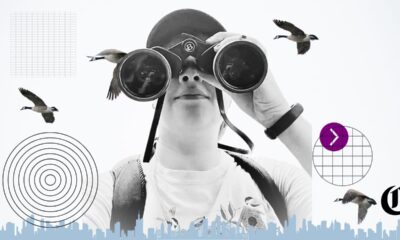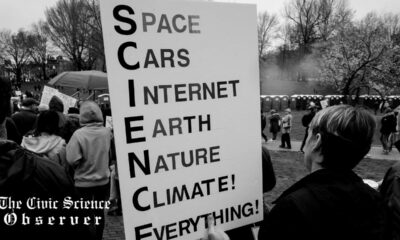The Briefing Signal
On the speed of science and slowness of democracy. Navigating the various temporal realities.
During the Q&A portion of the ‘Science and Democracy’ panel discussion on January 9, 2025, co-hosted by Boston’s Museum of Science and The Boston Globe, Professors Danielle Allen and David Kaiser responded to an audience question on the temporal misalignment between science and democracy. The moderator, Tim Ritchie (President of the Museum of Science) expanded the question by asking:
“The pace of technological change for something like #artificialintelligence, or the pace of technological change like for genetic engineering, these things are happening very quickly. The public wants to regulate in some way. Do we have the expertise to do so? How can the public have reasonable participation so that it actually counts for goodness?
Source: Museum of Science, Boston, MA “Science and Democracy” January 9, 2025 – https://www.mos.org/events/science-and-democracy-livestream
Additional background readings
1. Reinvigorating the Role of Science in Democracy
Authors: Michael Halpern, et al.
Published in: PLOS Biology
Summary: This article discusses how political and private interests often sideline scientific expertise in policy-making processes. It highlights initiatives aimed at strengthening the role of science in democratic governance by increasing public trust and accountability.
Author: Simon Joss
Published in: Science and Public Policy
Summary: This paper examines the rise of public participation in science and technology policy, analyzing its conceptual, methodological, and practical diversity, and its implications for policy-making processes.
Authors: Martin W. Bauer, et al.
Published in: PLOS ONE
Summary: This study provides a comprehensive analysis of the development of ‘public engagement’ rhetoric in science communication and policy, exploring its origins, motivations, and impact over time.
4. Perspective: Science Policy Through Public Engagement
Author: Richard A. L. Jones
Published in: Science and Public Policy
Summary: This article discusses the evolution of public involvement in science policy, highlighting how increasing public participation can lead to more supportive constituencies and better policy outcomes.
Fanuel Muindi is a former neuroscientist turned civic science ethnographer. He is a professor of the practice in the Department of Communication Studies within the College of Arts, Media, and Design at Northeastern University, where he leads the Civic Science Media Lab. Dr. Muindi received his Bachelor’s degree in Biology and PhD in Organismal Biology from Morehouse College and Stanford University, respectively. He completed his postdoctoral training at MIT.

-
 Audio Studio1 month ago
Audio Studio1 month ago“Reading it opened up a whole new world.” Kim Steele on building her company ‘Documentaries Don’t Work’
-
Civic Science Observer1 week ago
‘Science policy’ Google searches spiked in 2025. What does that mean?
-
Civic Science Observer1 month ago
Our developing civic science photojournalism experiment: Photos from 2025
-
Civic Science Observer1 month ago
Together again: Day 1 of the 2025 ASTC conference in black and white
Contact
Menu
Designed with WordPress
























